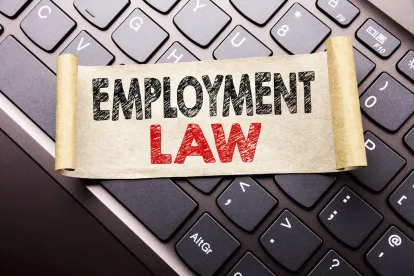Virginia may be for lovers, but it no longer loves non-compete agreements. Starting on July 1, 2020, employers may not “enter into, enforce, or threaten to enforce” a non-compete agreement with any “low-wage employee.” As previously reported, this law is just one of the many new employment laws enacted during the 2020 legislative session.
Who Qualifies as a “Low-Wage” Employee?
Senate Bill 480 defines “low-wage employee” as a worker whose average weekly earnings during the previous 52 weeks “are less than the average weekly wage of the Commonwealth” as calculated pursuant to VA Code § 65.2-500(b). According to recent data available from the Virginia Employment Commission (“VEC”), the average weekly wage is $1,204, which would equate to approximately $62,600 annually and could cover roughly half of Virginia employees. It is important to note, however, that the VEC issues a new calculation every quarter. Therefore, a non-compete agreement that would be otherwise enforceable under this new law when entered could end up being unenforceable should the average wage increase.
Interns, students, apprentices, and trainees are all considered to be low-wage employees, as are independent contractors compensated at an hourly rate that is less than Virginia’s median hourly wage for all occupations for the preceding year, as reported by the U.S. Bureau of Labor Statistics (currently $20.30 per hour). Significantly, however, employees whose compensation is derived “in whole or in predominant part” from sales commissions, incentives or bonuses are not covered by the law.
What Agreements Are Covered?
The new legislation applies to covenants or agreements that restrain, prohibit, or otherwise restrict a worker’s ability to compete with their former employer after termination. Of some concern is whether the law treats employee and client non-solicitation agreements as prohibited non-compete agreements. Although non-solicitation agreements are not expressly addressed in the statute, the definition of “covenant not to compete” may include prohibitions against solicitation of clients. The law states that a non-compete agreement “shall not restrict” an employee from providing services to the employer’s customers or clients “if the employee does not initiate contact with or solicit the customer or client.” (Emphasis added). Presumably, this means that non-compete agreements may prevent employees from soliciting the employer’s clients. There is less textual support for concluding that the definition of non-compete clauses include employee non-solicit provisions, but employers should monitor how these definitions are interpreted by the Virginia courts.
Importantly, while employers should be wary of entering or attempting to enforce client non-solicitation covenants, employers may still require low-wage employees enter into non-disclosure or confidentiality agreements to protect company trade secrets and proprietary and confidential information.
How Is the Law Enforced?
Employers who continue to enter or enforce non-compete agreements against low-wage employees may find themselves in court. The new law permits low-wage employees to bring a civil action against their former employer or any “other person” that attempts to enforce a non-compete agreement on or after July 1, 2020. Although “other person” is not further defined, it appears that individuals as well as employers face civil liability under the statute.
Low-wage employees must bring their lawsuits within two years of either the date (1) the non-compete was signed; (2) the low-wage employee learns of the non-compete; (3) the employee resigns or is terminated; or (4) the employer takes any step to enforce the non-compete. Under the new legislation, courts may void offending non-compete agreements, order an injunction, and award lost compensation, liquidated damages, and reasonable attorneys’ fees and costs to successful former employees. Additionally, employers face civil penalties of up to $10,000 for every violation of the law.
Employers may not discriminate or retaliate against any low-wage employee who files a lawsuit challenging a non-compete agreement pursuant to the new law. Employers must also display a copy of the law or summary approved by the VA Department of Labor and Industry (no such summary has been issued). Although employers will get one written warning, continued failure to comply with the posting requirement may result in civil fines of up to $1,000.
What About Covenants Entered Into Before July 1, 2020?
While Virginia’s new law states simply that “[n]o employer shall enter into, enforce, or threaten to enforce a covenant not to compete with any low-wage employee”, it also provides that it is applicable to those covenants “entered into on or after July 1, 2020.” (Emphasis added). As such, there appears to be a safe harbor or grandfathering of pre-July 1, 2020 non-compete agreements. Nonetheless, Virginia employers should be cautious before attempting to enforce pre-July 1, 2020 non-compete covenants, and should consider asking low-wage employees to sign amended restrictive covenant agreements (in conjunction with new consideration) that eliminate prohibited non-compete clauses.





 />i
/>i
